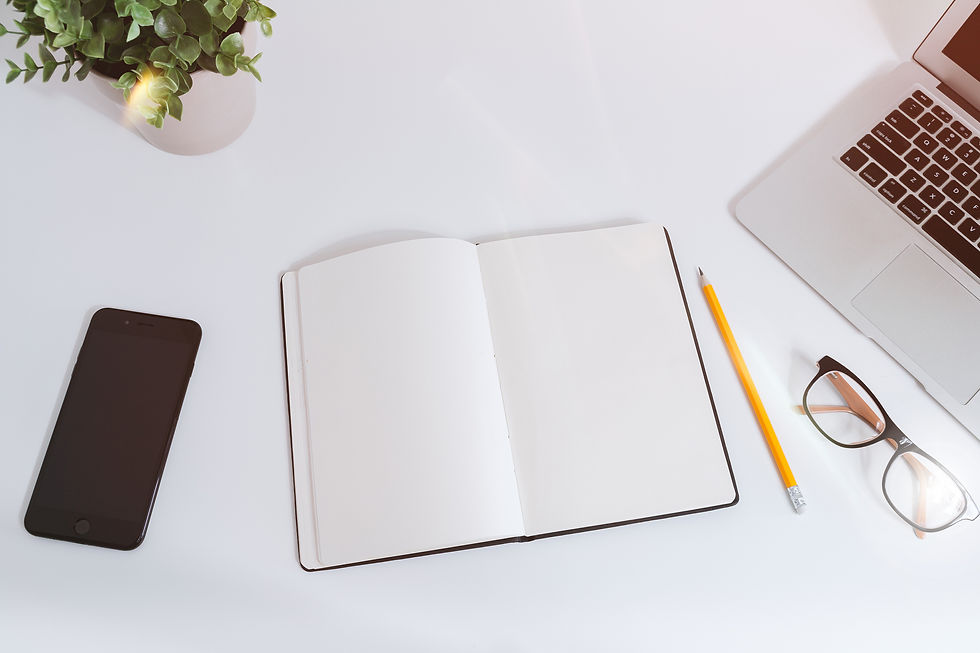Interview Prep
- Marisa Poolos
- Apr 12, 2017
- 4 min read

As a graduating senior, I've done a lot of job searching. The scariest part about the job process is going in for the interview. Interviews are scary and unpredictable. What are they going to ask you? Does your outfit look okay? Will I say the right things? So many questions can run through your head before walking in. After all, this is the first time you are meeting them and the first time they are meeting you. First impressions are important in our society. Luckily, there are plenty of ways to prepare for an interview. I thought I'd share how I usually get ready for one and the types of things you should be prepared to answer during the process.

Step 1: Get Excited
You did it. Your resume and application were good enough to nail you the interview. It's time to celebrate. Treat yourself to a nice dinner or buy yourself something little. Each time you get the callback, you need to remember that it means you're awesome. You already attracted their attention and now it's time to seal the deal.

Step 2: Research, Research, Research
Notice how I said it three times? That's because it's super important. You need to research the company and its history. You need to research the person you're interviewing with and find out their formal job title. It's important to know about the company you're trying to work for. During the interview, I guarantee they'll ask how much you know, and if you don't have an answer, you'll look careless. Do some research and find out about the company's history, its latest advances, and its values.

Step 3: Plan Out Your Outfit
Job interviews are all about first impressions. When you walk in the door, your clothes are making a statement. Make sure you've planned out what that statement is. The best way to decide on what to wear is to look at pictures of the staff and try to see what they wear. If you can find photos of employees, try to look like them so you give the impression that you fit right in. If you can't find anything, just wear neutral colors and basic interview attire to give off the impression of professionalism. You can add some little touches to stand out, but don't be too bold, unless the job calls for it.

Step 4: Put Together Your Materials
It's always good to print multiple copies of your resume to take with you. Especially if you know you'll be meeting multiple people. Print it on nice, thick paper and put it in a folder for safe keeping. You should also bring business cards if you have them and a notebook and pen to write with. Many people don't know that it's okay to take notes during an interview. It shows them you are consciously processing the job and taking interest in what they have to say. Be sure to have a simple purse or satchel to carry everything in. You want to appear put together and well organized so make sure all of your things are ready to go and easy to find.

Step 5: The Morning Of
When you wake up, wash your face and take time to get ready. Feel good about yourself and do a little pampering to relax. You should always try to arrive at an interview location 15 or 20 minutes early. Give yourself time to find where you are supposed to go. I also try to give myself around five extra minutes to sit in my car and calm my nerves. I hate walking into a place feeling stressed, so I arrive early enough to take my time finding the place and relax my mind.

Step 6: Thank You Notes
After the interview, you need to sit down and write a thank you note. Personal notes are more meaningful, but an email is acceptable in some situations. Either way, this needs to be done immediately to prevent you from forgetting the interview. Mention things that came up and any pleasant conversation topics. It shows you were actively listening and engaged in the conversation. If you use an email, send it the same evening of the interview. For hand-written notes, send them the next day so they arrive timely. You can always follow-up with an email and mail a personal note later on too.

Step 7: Relax
Anxiety after an interview is normal, but try your best to remain calm and not think about it until you find out if they want you or not. There's nothing you can do until they call. Realize it's out of your control and focus on the present rather than worry about the future.
I hope these seven steps help you understand the interview process a little more. We put a lot of pressure on ourselves to perform well and be outstanding. But, we all need to remember to balance out our stress and our joy when it comes to the interview process. Stay positive and I'm sure things will work out in your favor.


























Comments